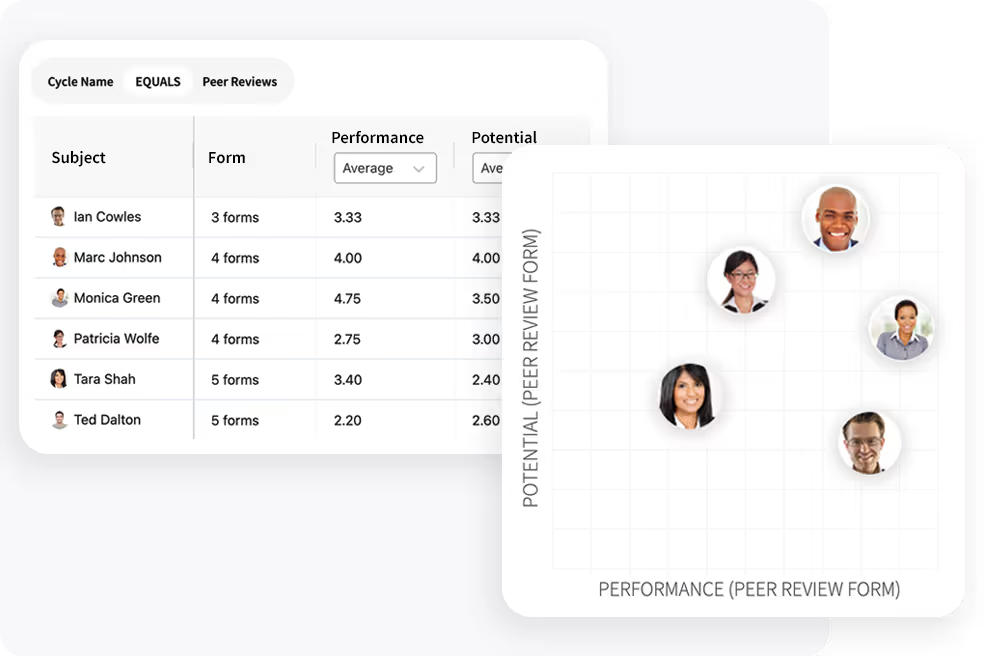Employee Core Competencies - Examples & Development Steps
Core competencies are the unique skills, knowledge, and behaviors that employees must develop. Cultivating them is a strategic imperative for organizations. It fosters a highly skilled and adaptable workforce. Moreover, it strengthens an organization's competitive edge.
Meanwhile, it’s also important to establish core competencies at an organizational level. They can drive innovation and efficiency. They can also create greater customer value and a strong market position.
This article explores how employees and organizations can use and improve their strengths to thrive in a fast-changing and ever-evolving economy.
Example Core Competencies for Employees
Certain core competencies are universally valuable for employees, regardless of their role or industry. These skills help people excel at their jobs. They also let them contribute to their organization's success. Here are some of the most important core competencies for employees:
- Communication Skills: The ability to clearly and effectively convey ideas, information, and feedback is essential for collaboration and ensuring that everyone is on the same page. Strong communication skills help in building relationships and driving team success.
- Problem-Solving: Employees who can analyze situations and solve problems are invaluable. They are a great asset to any organization. Problem-solving skills enable individuals to navigate challenges and find innovative ways to improve processes and outcomes.
- Adaptability: The capacity to quickly adjust to new situations, environments, and technologies is crucial in today’s rapidly changing work landscape. Adaptable employees are more resilient and can thrive in dynamic, fast-paced settings.
- Teamwork: Collaboration and the ability to work effectively with others are key to achieving common goals. Employees who excel in teamwork contribute to a positive work environment and help drive collective success.
- Leadership: Whether in a managerial role or not, leadership skills are important for guiding and motivating others. Employees who demonstrate leadership can influence their peers, drive initiatives, and contribute to the overall direction of the organization.
Example Core Competencies for Organizations
Core competencies in business vary depending on the industry, company size, and strategic objectives, but some common examples include:
- Innovation: The ability to consistently develop new products, services, or processes that meet evolving market needs. Companies like Apple and Google are known for their strong innovation capabilities.
- Customer Service: Providing exceptional service that creates a positive experience and fosters customer loyalty. Companies like Amazon and Zappos have built strong reputations around their customer service excellence.
- Brand Management: The skill of building and maintaining a strong, recognizable brand that resonates with customers. Coca-Cola and Nike are prime examples of companies with robust brand management competencies.
- Supply Chain Management: Efficiently managing the flow of goods, information, and finances across the entire supply chain. Companies like Walmart and Toyota excel in supply chain management.
- Quality Control: Ensuring products or services meet a consistent standard of quality, which is critical in industries like manufacturing and pharmaceuticals. Toyota and Johnson & Johnson are examples of companies with strong quality control competencies.
- Operational Efficiency: Streamlining processes to reduce waste and improve productivity. Companies like McDonald’s and Toyota are known for their operational efficiency.
- Research and Development (R&D): Investing in R&D to drive innovation and stay ahead of competitors. Pharmaceutical companies like Pfizer and tech companies like IBM have strong R&D competencies.
- Leadership: The ability to lead and inspire teams to achieve organizational goals. Companies like General Electric (GE) are known for their leadership development programs.
- Data Analytics: Using data to inform decision-making, predict trends, and optimize business processes. Companies like Netflix and Amazon leverage data analytics as a core competency.
- Financial Management: Managing financial resources effectively to ensure profitability and long-term growth. Berkshire Hathaway and Goldman Sachs are examples of companies with strong financial management competencies.
- Marketing: The ability to effectively promote products or services to target audiences. Companies like Procter & Gamble and Unilever are renowned for their marketing expertise.
- Adaptability: The ability to quickly adjust to market changes, new technologies, or disruptions. Companies that thrive in dynamic environments, like IBM and Microsoft, often possess strong adaptability competencies.
How to Develop Employee Core Competencies
It’s important to identify core competencies during the hiring process, before adding employees to your team. However, sometimes it’s also necessary to amplify your current staff. Here are some ways to develop skills within your current staff:
- Training Programs: Develop and offer training sessions to build specific skills, like communication or problem-solving. Tailor them to employee needs.
- Mentorship and Coaching: Pair employees with mentors or coaches who excel in these skills. They should provide guidance and real-world examples of how to develop and use them.
- Cross-Functional Projects: Encourage employees to join cross-functional teams or projects. They can practice teamwork, adaptability, and communication in a collaborative setting.
- Regular Feedback and Evaluation: Create a system for continuous feedback. Managers should regularly assess skills and give useful advice for improvement.
- Goal Setting and Accountability: Set clear, measurable goals for the desired skills. Hold employees accountable for their progress. Ensure they stay focused on their development.
These strategies can help employees develop the essential competencies they need to succeed.
Why Core Competencies Are Important in HR
Core competencies serve as the foundation for various HR functions. This includes talent acquisition, employee development, performance management, and succession planning. When HR teams align with a company's core competencies, they can attract, develop, and retain the right talent.
- Talent Acquisition: HR can identify the skills and attributes for success in the organization by focusing on core competencies. These actions aid in creating targeted recruitment strategies and ensuring new hires are qualified.
- Employee Development: Core competencies provide a clear framework for identifying training and development needs. HR can create programs to enhance these skills across the workforce. This will ensure employees grow in ways that support the company's goals.
- Performance Management: By aligning performance evaluations with core competencies, HR can ensure that employees are assessed on criteria that truly matter to the organization’s success. This leads to more meaningful feedback, better goal setting, and improved overall performance.
- Succession Planning: Knowing core competencies helps HR find high-potential employees. It can then prepare them for future leadership roles. This ensures a strong pipeline of talent ready to step into key positions, maintaining continuity and driving long-term success.
Advance Your Core Competencies with Technology
Remember that core competencies are not static; they should evolve as your organization grows and as markets change. Regularly reassessing and refining your competencies will keep your organization agile and well-positioned for long-term success.
Organizations that leverage technology to strengthen core competencies have an extra advantage. Performance management platforms let HR and managers track competency development in real-time. They can reveal insights for employee growth, such as skill gaps or areas of improvement.
PerformYard performance management software helps HR teams and managers track and evaluate employee skills. It aligns these skills with the company's strategic goals. Using PerformYard’s customizable templates and goal-setting features, organizations can create tailored competency models. This ensures that employees are assessed on the skills and behaviors that drive business success.

Learn more here.



.jpg)

